There’s a lot of discussion on why most traders lose money…
Every trader has ups and downs. But if you’re losing money habitually — and most traders do — chances are there are some simple explanations as to why.
Luckily, just because you’ve been losing money doesn’t mean you have to keep losing at the same rate.
There are some common bad habits that can cause traders to keep losing. Identifying these habits is the first step to changing them.
Here, I’ll talk about eight common reasons why most traders lose money and how you can work to turn things around.
Table of Contents
- 1 Do Most Traders Lose Money?
- 2 What Percentage of Traders Are Successful?
- 3 The 8 Reasons Why Most Traders Lose Money
- 3.1 #1) They Don’t Understand How the Stock Market Works
- 3.2 #2) Why Most Traders Lose Money: They Don’t Save
- 3.3 #3) They Don’t Track What’s Working
- 3.4 #4) You Don’t Have a Mentor
- 3.5 #5) They Don’t Do Research
- 3.6 #6) They’re too Scared to Fail
- 3.7 #7) They Don’t Learn From Mistakes
- 3.8 #8) They’re Stuck
- 4 How to Find Your Market Stride
- 5 Frequently Asked Questions About Why Most Traders Lose Money
- 6 Conclusion: Why Most Traders Lose Money
Do Most Traders Lose Money?
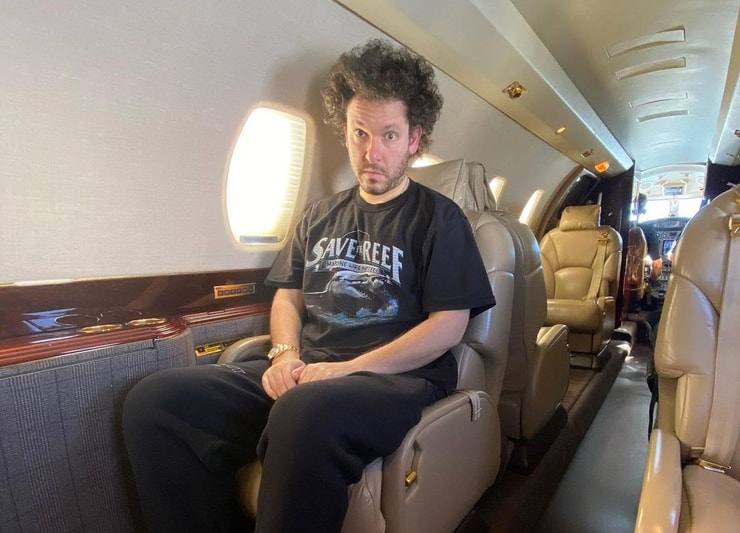
2025 Millionaire Media, LLCSome people say, ”95% of traders lose money” or “90% of traders lose.” But how true is that?
Different studies come up with different numbers. Nobody knows for sure, maybe because this industry is full of fakes and liars.
That’s why I created Profit.ly — to add some transparency to this industry. But a lot of traders want to hide behind screenshots showing off ‘massive’ profits.
What they don’t tell you is how much capital they’re risking or how much they lose when trades go against them.
Every trader loses, at least some of the time. Losses are part of trading — accept it.
I’ve been trading for more than 20 years, and I still only win about 77% of the time. But I’ve been able to grow my account to over $6 million.*
(*Please note: My results are far from typical. Individual results will vary. Most traders lose money. I have the benefit of years of hard work, dedication, and experience. Trading is inherently risky. Do your due diligence and never risk more than you can afford to lose.)
So what’s the number? Is it 80%, 90%, or even 99% of traders consistently losing? The exact numbers don’t matter. The fact that the majority of traders lose money is concerning enough.
But there’s a potential solution to the problem of why most traders lose money — education!
Here’s why I think most traders lose money and why you don’t have to make the same mistakes…
What Percentage of Traders Are Successful?
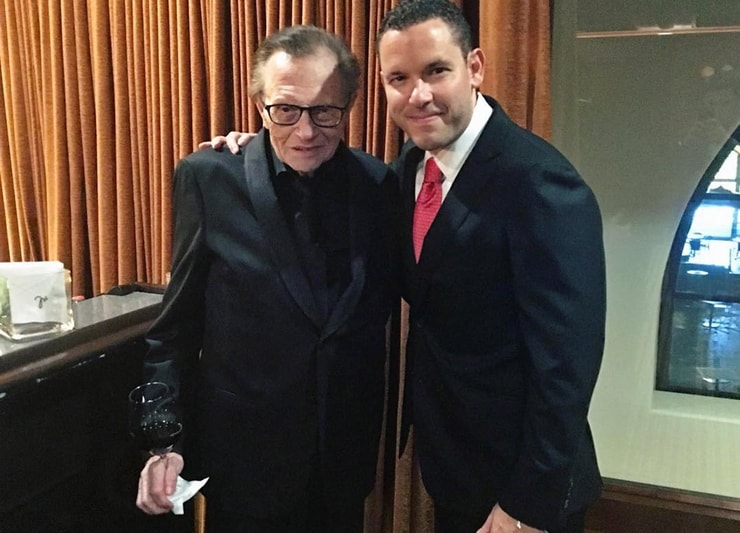
2025 Millionaire Media, LLCWe don’t know the exact numbers of successful or losing traders. But I think it’s safe to say that the percentage of day traders making money is significantly less than the percentage who lose.
I think the main reason there are so few successful traders is simple: Most people are lazy. They don’t want to put in the work. They want someone to tell them which stocks to buy, when to buy, and when to sell.
To make it in the market, you need to become self-sufficient.
Trading isn’t easy. Too many people come into the market with the mindset that they can get rich quick. That’s probably why they lose.
You have to focus on the process. You need a pattern and strategy you can repeat over and over again, yet still be ready to adapt.
Keep your losses smaller than your gains. Go for singles instead of home runs. That way, small gains add up over time.
The 8 Reasons Why Most Traders Lose Money

2025 Millionaire Media, LLCNow, let’s get to my list of reasons why most traders lose money…
#1) They Don’t Understand How the Stock Market Works
Why walk when you can run?
If that’s your mentality, chances are that you didn’t bother to learn how the stock market really works before you started trading.
Listen, I’m all for diving in and going for it — with a plan. It’s important to have some bravery and bravado.
But if you want to find consistency in the stock market, you’re going to have to invest some time in learning stock trading rules first.
- Take the time to learn how to trade stocks.
- Learn about penny stocks.
- Apply to join my Trading Challenge.
- Read all that you can.
All the knowledge you absorb will make you a better trader.
#2) Why Most Traders Lose Money: They Don’t Save
What do you do after a successful trade? Do you go out and splurge?
That could be why you keep losing money.
You need money to make money. Growing an account is much harder if you keep blowing your proceeds. You won’t have more money to trade, which means you could be putting a cap on how much you could make.
Many top traders save a big portion — sometimes even the majority — of what they make.
This is because they know that by saving their money, they’ll have more to put toward the next trade.
More Breaking News
- Unexpected Surge in BTG Stock Prices
- GRAB’s Unexpected Surge: Will It Last?
- Bit Digital’s Bold Move: What Lies Ahead?
#3) They Don’t Track What’s Working
As you grow as a trader, you should notice that some things work and others don’t. But are you really taking the time to evaluate what’s working and why?
Don’t waste your time on processes and trades that aren’t serving you.
Evaluate your goals often and see what’s working to propel you in the direction of your goals.
Sometimes, it’s easier to see what’s not working than what is. But also note what’s working for you, so you can keep doing it well and refining it.
Use Profit.ly, a trading journal, or a spreadsheet to track your trades. Record your trading plan and your reasons for the trade. After the trade, record how you traded it, how you were feeling, and what you could do to improve next time.
#4) You Don’t Have a Mentor
What if I told you there was a single step that you could take to speed up your learning curve, diminish losses, and propel you to faster success?
Well, there is such a step, and it’s as simple as this: find a mentor.
A mentor is someone who has already been on the path that you’re just starting on.
By learning from an established trader, you can accomplish in months what could otherwise take years.
Basically, you get the advantage of their hard-earned knowledge. This can help you to avoid common mistakes and to grow faster. It can be amazingly effective.
I started teaching to be the mentor that I never had. There were no mentors when I started trading, so I learned all my lessons the hard way. But you don’t have to … If you’re ready to learn how to trade with rules, a process, and a mentor, apply for my Trading Challenge.
You’ll get access to my video lessons, DVDs, webinars, and my Challenge chat room.
#5) They Don’t Do Research
Never follow alerts — it’s a key reason why most traders lose money. My alerts are to help students learn the process. But penny stocks move fast. By the time you get the alert, the play can be long gone.
So do your own research before every trade.
Wake up early so you have time to find potential trades and scan the market with this awesome scanning tool.
Always be prepared.
#6) They’re too Scared to Fail
New traders can be so afraid of losing money that they only pursue trades with minimal risk.
Learn this now: trading is risky. Yes, it’s scary. You might lose money.
The key is to start small to get a feel for the risk. I trade scared. That means I often take profits too soon. But small gains add up. And cut losses quickly. It’s my #1 rule for a reason.
I don’t love risk and you don’t ever have to either, but you do have to create a better relationship with it.
#7) They Don’t Learn From Mistakes
You will make mistakes as a trader. You will lose money.
But another reason why most traders lose money is that they fail to learn from their mistakes.
When you make a mistake or a trade goes bad, take time to reflect on what went wrong. It can help you avoid that error in the future and emerge stronger.
#8) They’re Stuck
William S. Burroughs said, “When you stop growing, you start dying.” This is absolutely true when trading.
Maybe you’ve figured out a good system that’s working for you. But will it keep working in exactly the same way, forever?
No way. It’s important that you keep growing so that you can remain nimble and adapt as the market shifts.
The key is to never get complacent and think you’re done learning. I urge you to continue to learn, network, and obsessively follow the market.
That can help you stay in the game longer.
Losing money every now and again is part of the process of trading. But if you notice that it’s happening over and over, it’s time to make some changes.
Making simple changes in your habits and in the way that you approach your work can go a long way toward helping you reduce your losses.
How to Find Your Market Stride

2025 Millionaire Media, LLCOnce you have a strategy that works for you, you have to learn to…
Take What the Market Gives You
You can’t impose your will on the market. It owes you nothing. If you’ve found some success with a strategy, it’s important to rinse and repeat — and adapt when it stops working.
Some traders find a bit of success and think they have the market figured out. They take on more risk, use bigger position sizes, and go for home runs. It can result in account blow-ups pretty quickly…
Stay humble, disciplined, and always be ready to…
Adapt to Market Changes
Trading isn’t an exact science — the market is like a moving target. You constantly have to learn and adapt. Patterns work one day, then they don’t. The market’s always changing. Never get too comfortable with a strategy or pattern.
Recognize when things aren’t working and adjust your plan. Don’t try to force trades. Study the past, learn old patterns, watch the current market, and paper trade new strategies on StocksToTrade.
And always…
Use the Right Broker
You need the right broker for your trading strategy. If you trade over-the-counter (OTC) stocks, you need a broker with good executions. If you short sell, you need a broker that has shares to borrow and lower fees and interest.
It’s also important to find the right platform and tools for your trading style. StocksToTrade has all the tools you need to trade penny stocks. And it has broker integration, so you can link your account and trade right through the platform.
Get a 14-day trial of StocksToTrade with the Breaking News Chat for $17.
(Quick disclaimer: I proudly helped design and develop StocksToTrade and am an investor in it.)
Everyone using Robinhood or Webull, go look at $TSNP $SUTI $ALPP $ENZC $AWGI $CBBT $VRYYF & start to realize that you’re missing out on the easiest, most predictable setups in the entire market. Do NOT be cheap when it comes to brokers/tools/education, you miss out on TOO MUCH!
— Timothy Sykes (@timothysykes) November 27, 2020
Frequently Asked Questions About Why Most Traders Lose Money

2025 Millionaire Media, LLCDo Most Options Traders Lose Money?
Yes, most options traders lose money. Just like trading, it’s not a way to get rich quick. Trading options is complex and risky.
Why Do Forex Traders Lose Money?
Most foreign exchange (forex) traders — like most traders — lose money because they don't have a risk management strategy. You need to have a plan for a trade before you take it. That includes where you’ll cut losses when the trade goes against you. Then you need the discipline to stick to your risk level.
Why Intraday Traders Lose Money
Most intraday traders lose money because they treat trading like gambling. They see a stock going up, so they buy it. And they don’t have a plan for cutting losses or where they’ll take profits. So they end up holding and turning a trade into an investment.
I LOVE hearing from my students, it’s not just about the $ profits, it’s about them learning THE PROCESS how to make yearly income-type $ in a few days/weeks NOT going all in or using leverage, just capitalizing all the volatility now, @Jackaroo_Trades is also +$75k THIS WEEK!
— Timothy Sykes (@timothysykes) November 25, 2020
Conclusion: Why Most Traders Lose Money
I’ve been trading for over 20 years, and I’ve been a teacher for over 10. In that time, I’ve met a lot of traders and taught a lot of students.
I can tell you what I think about why most traders lose money. They lack either education, discipline, or dedication and persistence. Or they have too big of an ego and can’t take the losses.
Accept that you’ll have losing trades. You won’t win 100% of the time. You also need a risk management strategy to keep your losses smaller than your gains. My #1 rule is to cut losses quickly.
And don’t let small losses get you down. Learn from your mistakes and move on. There’s a ton of opportunities in the market. There’ll always be another play.
If you want to learn how I trade penny stocks, and the rules that have kept me safe in the market for over 20 years, apply for my Trading Challenge.
Why do you think most traders lose money? Let me know in the comments!
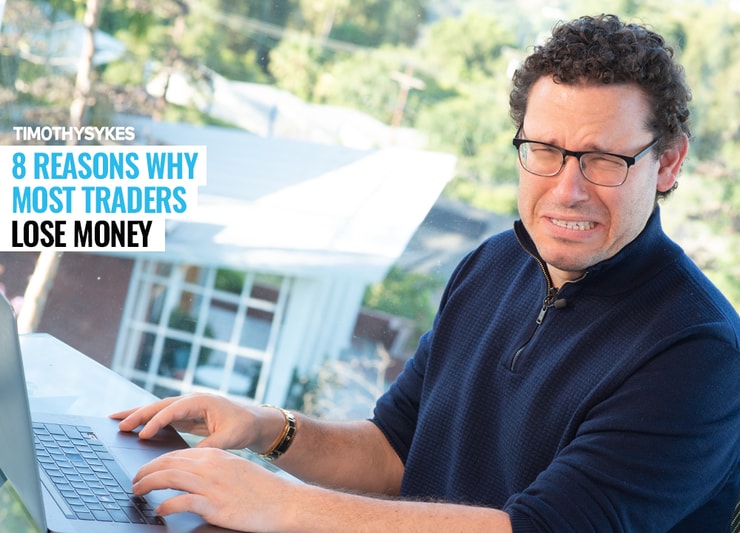

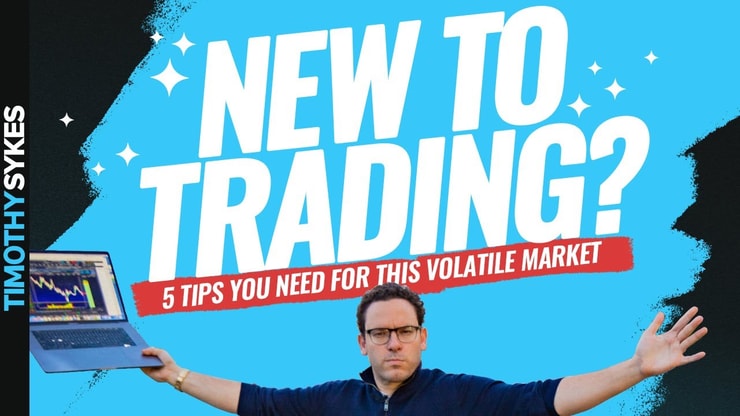



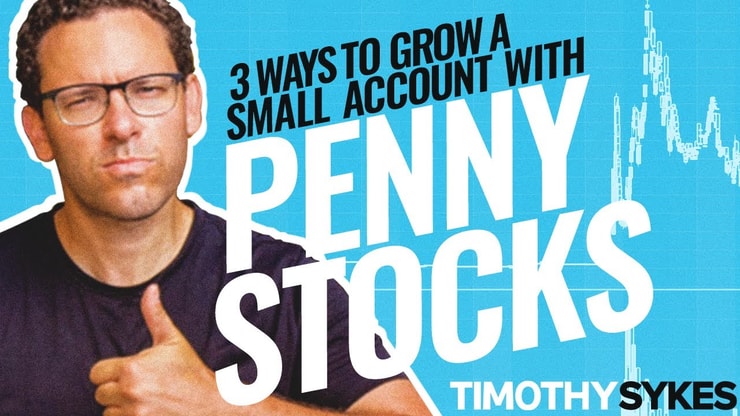








Leave a reply